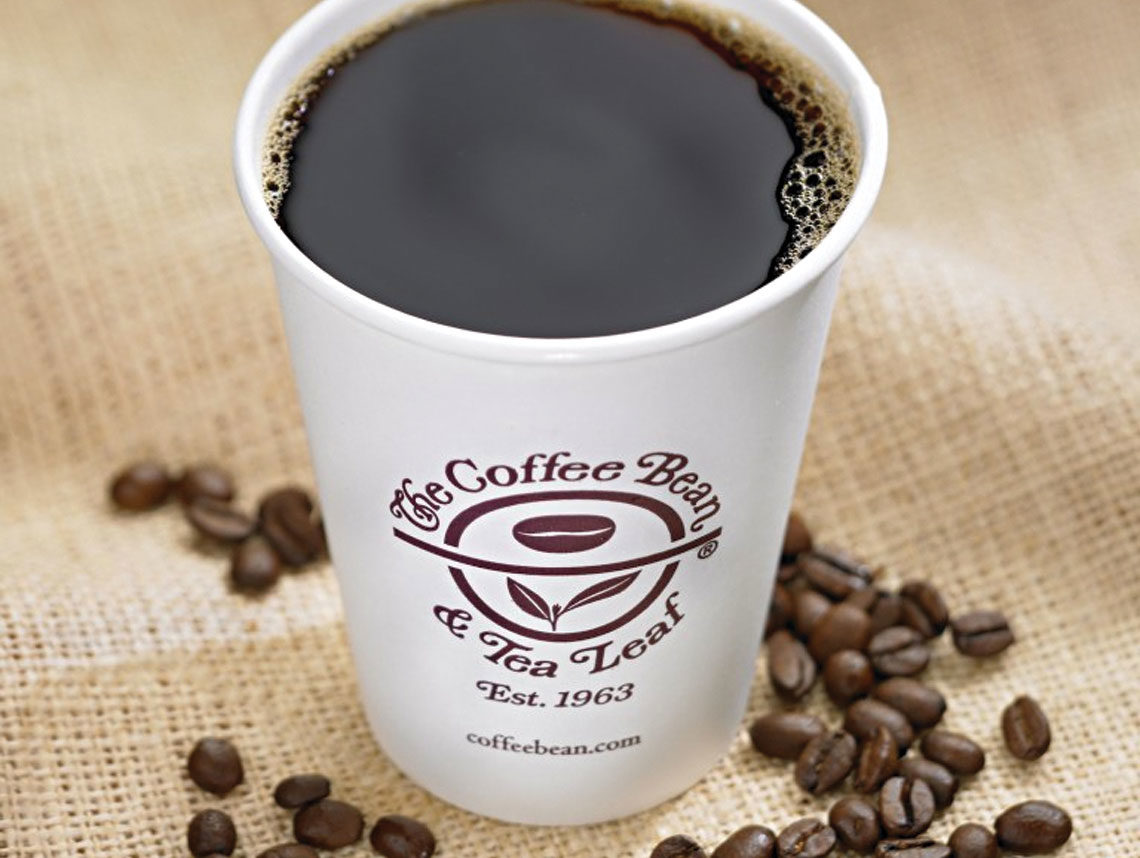 Coffee Bean & Tea Leaf; Photo by Wikimedia Commons
Coffee Bean & Tea Leaf; Photo by Wikimedia Commons Update: This article was updated on May 15 to include a response from CBTL management.
On May 12, The Coffee Bean and Tea Leaf (CBTL) announced as of next month, it will no longer be offering full kosher certification in its stores. While all food and beverage items are currently kosher in most CBTL stores across Southern California (aside from certain franchised stores), come June 8, only certain items will continue to be kosher.
According to a company statement, CBTL had been doing “extensive consumer research” before the pandemic and “came to the decision to end our storewide kosher-only status and broaden our product offers. While this was initially scheduled to be a phased rollout, the economic impact of the COVID-19 pandemic has resulted in increased business pressures.”
Beginning June 8, CBTL will serve non-kosher bakery items. However, packaged coffees, teas and powders will still be kosher-certified through Kosher Supervision of America (KSA), and behind-the-bar beverages will be created using “a wide assortment of products made from kosher ingredients.” A variety of kosher-certified cold case options will be made available to guests as well.
CBTL has been a SoCal staple since it opened in 1963, and a kosher destination for customers in LA and surrounding areas. It currently offers a kosher version of the frappuccino called the Ice Blended, numerous baked goods including scones, bagels, cookies and challah on Fridays. At one point, the chain even opened up a Chalav Yisrael store near Hancock Park. CBTL noted in its May 12 statement, “We have long been committed to providing food and beverage offers that delight and inspire our guests, including the Orthodox community.”
In March 2017, the company began rolling back its kosher status. A handful of franchised stores including those at LAX, USC Cinema and Paramount Studios opted out of kosher certification. Two Jewish brothers who keep kosher used to own CBTL, but in 2019, the Philippines’ largest fast food chain, Jollibee, acquired the company for $350 million.
Samuel Friedman, who keeps kosher and lives in Long Beach, told the Journal he was disappointed with CBTL’s decision. “Long Beach has very few kosher options, just like the rest of Southern California [and] anywhere outside Los Angeles. It is one of the very few widespread pescatarian chains in SoCal with lots of vegetarian and vegan options. CBTL’s certification helps many of us keep kosher in these more ‘remote’ locations. I ask that CBTL reconsider its decision.”
Mia Adler Ozair is also not happy about CBTL’s decision, but said she understands the decision and hopes there can be some middle ground. “We are not entitled to kosher coffee shops,” she told the Journal. “They are for certain a luxury and these are business decisions, but perhaps the best way is to let CBTL know how much we value them in our communities and ask them to keep certain key stores kosher in LA, NY and other major cities within our religious neighborhoods.”

Filmmaker Arnon Shorr said he always felt comforted by the fact that whenever he was around LA, kosher food and drinks were just a few minutes away thanks to CBTL.
“By getting rid of their kosher food, they might save a few pennies, but they’ll lose the thing that made them truly unique among the nation’s great coffee shop brands,” he said. “And those of us who keep kosher in the cities where Coffee Bean operates, we’ll lose much more. We’ll lose the opportunity to feel, just a little bit, like normal folks, out and about, getting hungry, grabbing a sandwich.”
A representative from CBTL responded on May 15 to the following questions the Journal sent via email:
Is there any possibility of changing this decision after the shutdown ends?
No. As we outlined in our announcement, this decision was a long time in the making and based on deep consumer research. Our decision to change kosher status was in large part based on that consumer feedback and the majority of our consumer preferences. This decision is not related to the current pandemic.
When you say kosher ingredients for behind the bar beverages, does this mean the beverages will be kosher certified or not? Will all behind the bar beverages have kosher ingredients or just some?
The behind the bar beverages will not be certified. While the retail items (coffee/teas/powders) are certified through KSA, the behind the bar beverages are still made with Kosher ingredients.
Is there any possibility of keeping some stores in Orthodox Jewish neighborhoods kosher? No. In looking at the overall business needs while at the same time trying to maintain a consistent brand experience for our guests across all of our locations, non-kosher status will apply to all stores.























 More news and opinions than at a Shabbat dinner, right in your inbox.
More news and opinions than at a Shabbat dinner, right in your inbox.